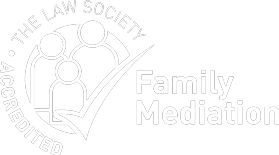Court is essential, but it’s not for everyone
‘One fifth of divorces wrongly ending up in court – top judge’
Sir Andrew McFarlane, head of the family courts in England and Wales has reportedly said that divorcing couples too often believe their issues are ‘legal’ ones, when in fact they are ‘relationship’ issues that could be resolved without the court’s involvement.
This is a message that those of us advising clients day-to-day will endorse. The idea that the family courts are the best first port of call is outdated. As a family lawyer who consistently sees the benefits of alternative dispute resolution (ADR) mechanisms for people and families, I am in no doubt that, for many, court could and should be avoided. ADR in family matters is wide ranging and includes solicitor led negotiation, mediation, collaborative law, early neutral evaluation and arbitration.
Delays, expense and a negative effect on relationships are often cited as downsides to the court system. So, if you could swerve those negatives, why wouldn’t you?
Well, there may actually be a good reason. Where a family situation involves a dispute in relation to children with domestic abuse or protection or safeguarding issues, the court route is the only answer; ADR, not an option. And so, as Sir Andrew made clear, the court remains crucial where there are safety concerns.
Another legitimate reason for people turning to the courts is that attempts at ADR have failed. For ADR to work, both parties must commit to cooperate in reaching an agreement, including around the division of assets and arrangements for their children. As a solicitor supporting clients through ADR, I have seen many successes: constructive and conciliatory resolutions to issues with far less conflict than a court based approach. However, there have been times when things have broken down. Strength of feeling hinders progress. Sometimes the parties just can’t agree a way forward. They’re deadlocked. And when that happens, a judge may need to become involved.
That, I think, is proper use of the family court. It means court resources are invested in the right cases. And a continuing concerted effort to keep those matters that can be resolved in other ways out of the court system really is necessary, not only to free up the courts for cases that really need to be there, but also to help preserve family relationships. Sir Andrew has highlighted how the hostile and adversarial language used in the family court, often makes things worse and how disputes can damage children both in the short and longer term.
This is the reality of a system that needs significant change, perhaps building on the momentum generated by the introduction of no-fault divorce this year. The majority of my clients seeking divorce advice in the run up to the new law chose to wait until that came into force on 6 April 2022 keen to adopt a conciliatory approach from the outset to reduce conflict and anxiety. The Ministry of Justice is investing £324m over the next three years in providing swifter access to justice in family courts – something I very much hope will ease the burdens on the system and reduce stresses and strains on families. Since March 2021 the Ministry of Justice has also offered a £500.00 voucher contribution towards the cost of mediation for eligible cases involving a child dispute bringing the total funding available to just under £8.68 million since March 2021. We shall have to wait and see what comes from this additional funding but I feel steps are certainly being made in the right direction.
For now, I would urge families that are going through a separation to look into all options for resolving their issues. Don’t assume a court battle is the route for you. Experienced Solicitors like me work in the background in the early days of a separation to help clients understand how ADR could work for them, signposting options and supporting them through to resolution. Families need a solid foundation from which they can successfully co-parent and improve the lives of themselves and their children. ADR can provide that. And by choosing to work with your partner, instead of being pitted against one another (as so often happens in court), there really is a good chance that everyone will emerge relatively unscathed.
Divorce is difficult. It’s difficult for couples, parents, children. My message is: don’t make it more difficult than it needs to be.
For advice about separation, divorce, ADR or anything else to do with family disputes, contact Kate Denham or call our Family Law team on 020 3811 2894.











